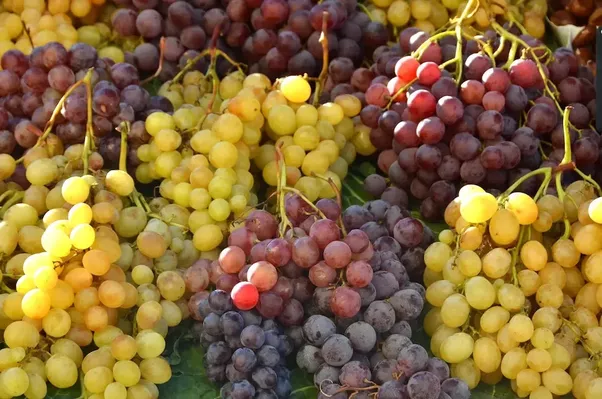A natural compound found in grapes has been found to strengthen teeth and prevent tooth decay, a study says.
Scientists claim that the discovery could stop people from losing teeth and also boost the strength of fillings, allowing them to last longer, according to Daily Mail.
Grape seed extract has long been linked to health benefits such as improved heart function and better circulation.
Now the substance could reduce tooth extractions by increasing the longevity of composite-resin fillings – or tooth-coloured fillings – which typically last only five to seven years.
The extract has been found to toughen dentin, the tissue that makes up the bulk of the tooth which lies beneath the hard external enamel.
This means that when teeth are damaged, the remaining structure can be made stronger to bond with materials used in fillings.
It could spell good news for patients who opt for resin fillings because they are more aesthetically pleasing, even though they are not as tough amalgam fillings, which last 10 to 15 years or more.
‘When fillings fail, decay forms around it and the seal is lost. We want to reinforce the interface, which will make the resin bond better to the dentin,’ said Dr Ana Bedran-Russo, associate professor of restorative dentistry.
‘The interface can be changed through the use of new natural materials.’
How it works
Tooth decay can occur when acid is produced from plaque, which builds up on your teeth.
When we consume food and drink high in carbohydrates – particularly sugary foods and drinks – the bacteria in plaque turn the carbohydrates into energy they need, producing acid at the same time.
If the plaque is allowed to build up, the acid can begin to break down the surface of your tooth, causing holes known as cavities.
The cavity begins to eat away at the second level of tooth material that lies beneath the enamel: the dentin.
A filling can still be used to stop the onslaught of bacteria assaulting the tooth in order to prevent the cavity from reaching the tooth’s most critical component: the pulp.
Dentin in teeth is mostly made of collagen, the main structural protein in skin and other connective tissues, the researchers explained.
They discovered that damaged collagen can repair itself with a combination of plant-based oligomeric proanthocyanidins – flavonoids found in most foods and vegetables – and extracts from grape seeds.
And when it comes to fillings, resins have to bind to the dentin, but the area between the two, or the interface, is a weak point, causing restorations to breakdown.
Interlocking the resin and collagen-rich dentin provides better adhesion and does not rely on moisture.
‘The stability of the interface is key for the durability of such adhesive joints, and hence, the life of the restoration and minimizing tooth loss,’ Dr Bedran-Russo said.
N.H.Kh

